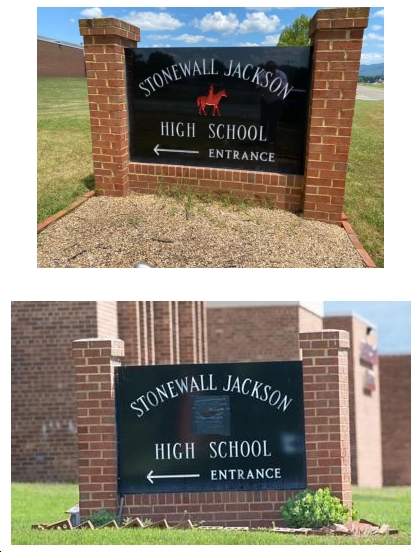A few minutes ago, the Arlington’s County Board unanimously passed a “Request to Advertise” on a “Missing Middle” housing proposal that comes after a long process and much (sometimes heated) debate/discussion. Key points by Board members in closing remarks, per reporter Margaret Barthel (who has done a great job covering the debate – thank you!), include the following. Also, see the video, below.
Matt DeFerranti gave a historic overview of exclusionary single-family zoning in Arlington. According to DeFerranti, this dates back to the 1930s, when the county banned rowhouse and “non-single-family homes in many places, the purpose was to racially exclude certain individuals and thereby communities; that was not repealed until the late 1960s.” DeFerranti said that today’s decision marks “a change from a hard-and-fast sense of ‘we will have density only in the corridors and single-family neighborhoods will be left alone.’ I don’t think that is the right plan for our next…10, 20, 50 years. That social contract is shifting and we have to acknowledge that the social contract we’ve had has not been as inclusive as it needs to be going forward.” DeFerranti concluded: “Missing Middle will not fix all our problems or deliver housing that is affordable to every income level, but it will be a part, a critical part, in righting the wrongs of the past and providing greater access going forward.”
Christian Dorsey said he is “‘deeply disappointed’ in the RTA that will go out, feels the Board has limited its ‘ability to craft the best possible way to move forward.'” Dorsey argued that taking the 7- and 8-plexes off the table is “‘a shame’ because it gets rid of most affordable options.” Yep. But Dorsey voted to move ahead, regardless, saying “it is what it is,” namely a chance “to do something that hopefully achieves some of the transformative goals that Mr. DeFerranti so eloquently stated, while at the same time fulfilling our responsibility to deliver for our community a coherent policy where the benefits are clear, the burdens are mitigated or prevented in its entirety, and that this is something that is sustainable for a long time.”
Libby Garvey said to Christian Dorsey, “So sorry that you’re disappointed, but that’s the nature of what we are doing. I’m not. We should be doing sensible and measured change, and what we’re advertising feels to me like that.” Garvey added that “the reason [the proposal has] been changing is because we have been listening to people.”
Takis Karantonis pointed out that exclusionary single family zoning acts as “a huge drag on our economy and future.” Karantonis said that ‘we are at a point where we have to manage growth in a different way’…agreeing with De Ferranti’s points about smart growth along dense corridors. Says Missing Middle will ‘build upon’ that original version of smart growth.”
Katie Cristol nailed it, saying: “Nearly a century later, we are now evaluating the largest and most restrictive land use policy in Arlington’s history…We are actively perpetuating that every day that we let it stand.” Also, Cristol “pushes back on the idea that the policy is ‘divisive.’ [arguing that] ‘What this policy is one that exposes the divisions in our community, the chasm of opportunity and experience, by those who are fortunate enough to have already bought in, and those who want that opportunity.'” Bingo! And Cristol added, “‘We are in danger of … ceding the forms that will deliver’ the goals of broader affordability by limiting the number of units and places where they can go. Criticizes the final product as chasing public opinion.” The bottom line, in Cristol’s (correct) view: “We cannot let this policy intervention — deeply restrictive zoning is the policy intervention — we cannot let it stand on our watch.”
It’s interesting, by the way, that the two members – Cristol and Dorsey – who aren’t running for reelection supported the most aggressive policy, while the other three members – DeFerranti, Karantonis and Garvey – were less aggressive, specifically on 8- and 7-plexes. Personally, I’d have probably sided with Cristol and Dorsey, as it’s long past time to reverse nearly a century of housing policy that’s been harmful to diversity, equity, affordability, the environment, etc. But in the end, at least things seem to be moving forward housing diversity in Arlington County, which is more than one can say for most jurisdictions in Virginia, let alone for the Commonwealth as a whole.
If you want to get a good feel for the “Missing Middle” debate in Arlington, check out the video starting at 4:26:41, and definitely watch the SUPERB presentations by Jane Green, Dean Amel, Bryan Coleman, Julie Rosenberg and Pamela Quanrud. https://t.co/MGNpISzivj pic.twitter.com/PYCp9g75ek
— Blue Virginia (@bluevirginia) January 25, 2023















